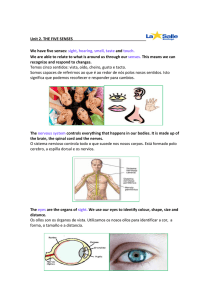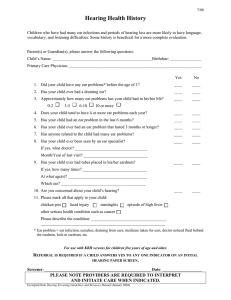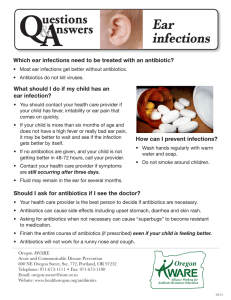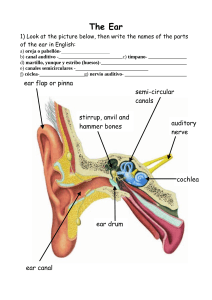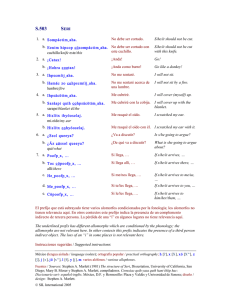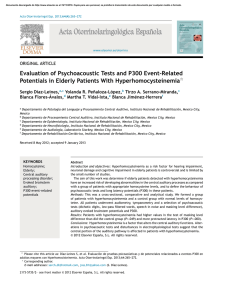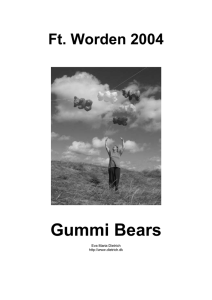UNIT 2- The five senses
Anuncio
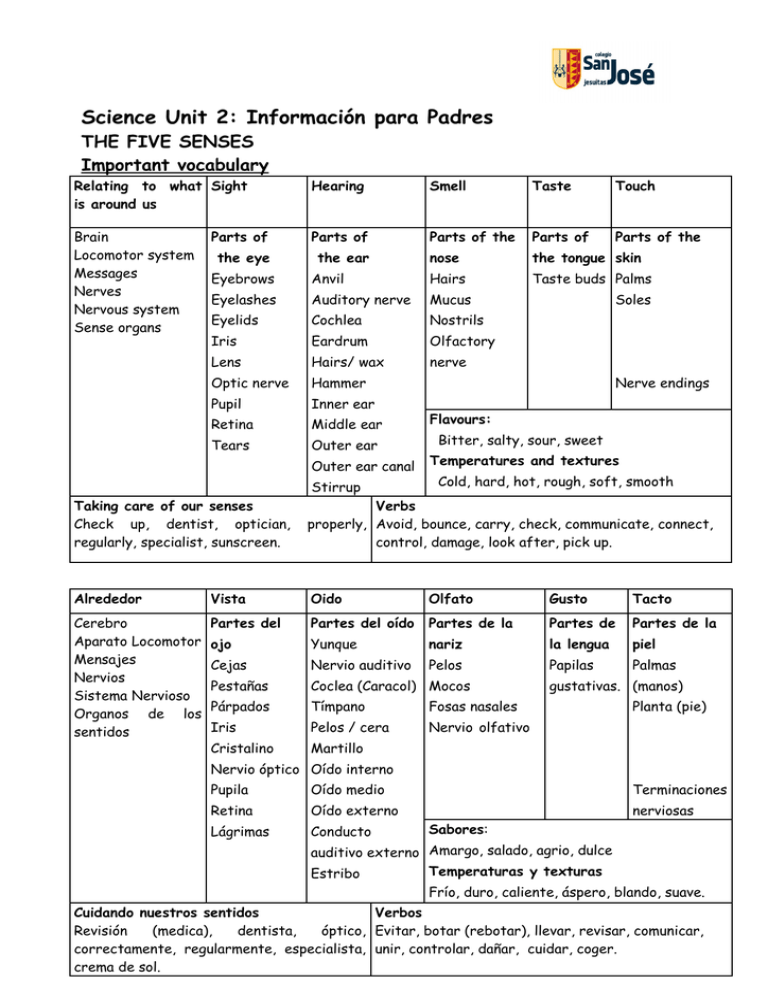
Science Unit 2: Información para Padres THE FIVE SENSES Important vocabulary Relating to what Sight is around us Hearing Smell Taste Touch Brain Locomotor system Messages Nerves Nervous system Sense organs Parts of Parts of Parts of the Parts of Parts of the the eye the ear nose the tongue skin Taste buds Palms Eyebrows Anvil Hairs Eyelashes Auditory nerve Mucus Eyelids Cochlea Nostrils Iris Eardrum Olfactory Lens Hairs/ wax nerve Optic nerve Hammer Pupil Inner ear Retina Middle ear Tears Outer ear Outer ear canal Stirrup Soles Nerve endings Flavours: Bitter, salty, sour, sweet Temperatures and textures Cold, hard, hot, rough, soft, smooth Taking care of our senses Check up, dentist, optician, regularly, specialist, sunscreen. Verbs properly, Avoid, bounce, carry, check, communicate, connect, control, damage, look after, pick up. Alrededor Vista Oido Olfato Gusto Tacto Cerebro Aparato Locomotor Mensajes Nervios Sistema Nervioso Organos de los sentidos Partes del Partes del oído Partes de la Partes de Partes de la ojo Yunque nariz la lengua piel Cejas Nervio auditivo Pelos Papilas Palmas Pestañas Coclea (Caracol) Mocos Párpados Tímpano Fosas nasales Iris Pelos / cera Nervio olfativo Cristalino Martillo gustativas. (manos) Planta (pie) Nervio óptico Oído interno Pupila Oído medio Terminaciones Retina Oído externo nerviosas Lágrimas Conducto Sabores: auditivo externo Amargo, salado, agrio, dulce Temperaturas y texturas Estribo Frío, duro, caliente, áspero, blando, suave. Cuidando nuestros sentidos Verbos Revisión (medica), dentista, óptico, Evitar, botar (rebotar), llevar, revisar, comunicar, correctamente, regularmente, especialista, unir, controlar, dañar, cuidar, coger. crema de sol. Relevant sentences and important information We are able to relate to what is around us through our senses. That means we can recognise and respond to changes. Somos capaces de relacionarnos con lo que hay alrededor de nosotros a través de los sentidos. Esto significa que podemos reconocer y responder a esos cambios. The nervous system controls everything that happens in our bodies. It is made up of the brain, the spinal cord and the nerves. El sistema nervioso controla todo lo que ocurre en nuestros cuerpos. Está formado por el cerebro, la médula espinal y los nervios. We have five senses: sight, hearing, smell, taste and touch. Tenemos cinco sentidos: vista, oído, olfato, gusto y tacto. The eyes are organs of sight. We use our eyes to identify colour, shape, size and distance. The eye has different parts: the iris, the pupil, the lens and the retina. Los ojos son los órganos de la vista. Usamos nuestros ojos para identificar colores, formas, tamaños y distancia. El ojo tiene varias partes: El iris, la pupila, el cristalino y la retina. The ears are the organs of hearing. We use our ears to hear sounds. The ear has 3 parts: the outer ear, the middle ear and the inner ear. Los oídos son los órganos del sistema auditivo. Usamos nuestro oído para escuchar sonidos. El oído tiene 3 partes: Oído externo, oído medio y oído interno. The nose is the organ of the smell. We use our nose to identify different smells. La nariz es el órgano del olfato. Usamos nuestra nariz para identificar olores diferentes. The organ of taste is the tongue. The tongue is inside the mouth. We use the tongue to identify different flavours. El órgano del gusto es la lengua. La lengua está dentro de la boca. Usamos la lengua para identificar sabores diferentes. The skin is the organ of touch. We use our skin to identify if something is hot or cold, soft or hard, smooth or rough. La piel es el órgano del tacto. Usamos la piel para identificar si algo está caliente o frío, si es blando o duro, si es suave o áspero. It is important to look after our sense organs. We need our eyes, ears, nose, tongue and skin to know what is happening around us. Es importante cuidar nuestros órganos sensoriales. Necesitamos nuestros ojos, oídos, nariz, lengua y piel para saber lo que está ocurriendo alrededor de nosotros.
